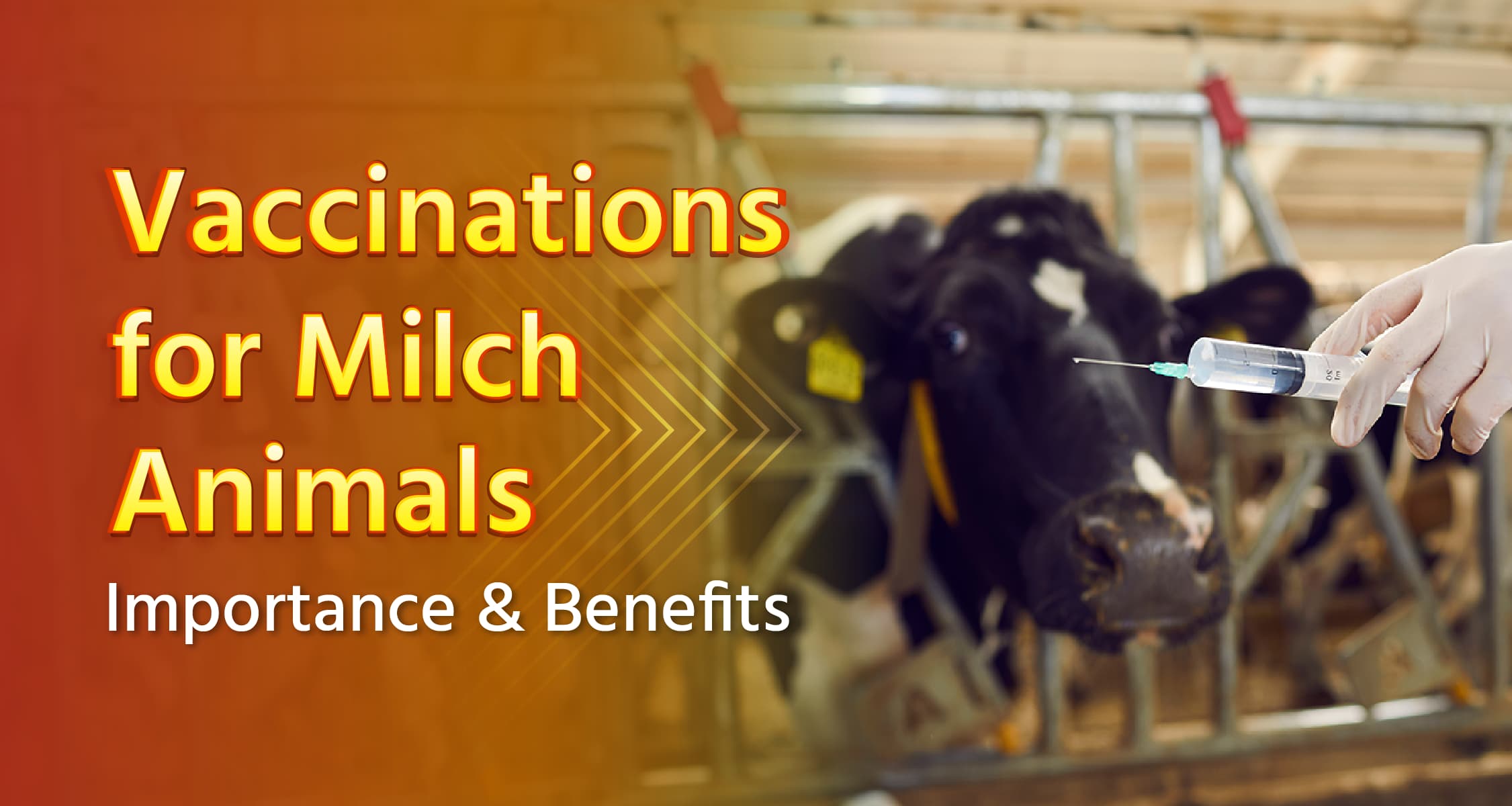तपशील
Vaccination in Dairy Animals: Importance and Benefits

Animal husbandry is an important aspect in India. This post is quite beneficial for people and farmers involved in the business of animal husbandry and dairy production. Here we will cover important details on the importance and benefits of vaccination in dairy animals. Vaccination in dairy animals is quite crucial and should not be neglected. Vaccination can protect animals from life-threatening diseases which can provide considerable profits and stability for people and farmers involved in the business of animal husbandry.
Importance of Vaccination in Dairy Animals
- The risk of various infectious diseases in animals is reduced.
- Vaccination enhances the immune capacity of animals. It gives animals the strength to fight against adverse bacteria, viruses, fungi, infections, etc.
- Through animals, several diseases can spread to humans. These diseases include cowpox, brucellosis, tuberculosis, etc. Hence, It is very important to vaccinate animals to prevent these diseases from spreading.
- Vaccination can save animals from death caused by several fatal diseases.
- Vaccination can help prevent reproductive disorders in dairy animals, such as infertility and miscarriage.
Disadvantages of Not Vaccinating Dairy Animals
- Increased Risk of Infectious Diseases: Not vaccinating dairy animals on time increases the risk of infectious diseases such as Foot and Mouth Disease (FMD), brucellosis, anthrax, and many others. These diseases can cause significant economic losses to farmers and may also lead to the death of animals.
- Reduction in Milk Production: Sick animals cannot produce milk, or the quality of their milk decreases. Infectious diseases can reduce milk production in dairy animals, leading to substantial economic losses for farmers.
- Increased Use of Antibiotics: Not vaccinating dairy animals makes them more likely to fall ill. Controlling various diseases may require the use of antibiotics. Excessive use of antibiotics can lead to antibiotic resistance, making it difficult to treat infections in both animals and humans.
- Threat to Human Health: If dairy animals are not vaccinated, many diseases can spread to humans through their milk and other dairy products. This can pose a significant threat to human health.
Benefits of Vaccination in Dairy Animals
- Increase in Immunity: Timely vaccination of dairy animals increases their immunity.
- Protection from Infectious Diseases: Vaccination helps protect animals from infectious diseases.
- Cost Reduction: Healthy and disease-free animals reduce the expenditure on medicines.
- Prevention of Abortion Disease: Sometimes, due to various reasons, the chances of abortion in animals increase. Vaccination can help prevent abortion chances in dairy animals.
- Increase in Milk Production: Vaccination reduces the likelihood of animals getting diseases. Healthy animals can produce more milk.
Factors to Consider While Vaccinating Dairy Animals
- Consult a Veterinarian: It is important to consult a veterinarian before vaccinating dairy animals.
- Monitoring After Vaccination: It is crucial to monitor the animal for any adverse reactions after vaccination. If any adverse reaction is observed, consult a veterinarian immediately.
- Maintain Records: Keeping accurate records of the vaccinations given to dairy animals is essential. This helps ensure that the animals are protected from diseases.
- Proper Storage of Vaccines: Vaccines should be stored properly to maintain their effectiveness. They should be kept in a cool, dry place and protected from light.
Do you regularly vaccinate your animals? Share your answers and experiences with us through comments. For more information on livestock care and nutrition, follow the 'Pashu Gyan' channel now. Also, don't forget to like and share this post to reach more farmers and people who are involved in the livestock business.
Frequently Asked Questions (FAQs)
Q: Which diseases can be prevented in animals through vaccination?
A: There are several diseases that can be prevented in animals through vaccination. These diseases include foot-and-mouth disease, rabies, brucellosis, avian influenza, and newcastle disease. Vaccination is an effective way to control and prevent the spread of these diseases, which can have significant impacts on animal health, welfare, productivity, and human health.
Q: When should animals be vaccinated?
A: The timing of animal vaccination depends on several factors, including the age and health condition of the animal, the type of vaccine being used, and the targeted disease. Generally, vaccination should be done according to the advice of a veterinarian.
Q: Why is vaccination necessary for animals?
A: Vaccination is necessary to protect animals from infectious diseases that can cause illness, death, and economic loss. It also helps prevent the spread of diseases to other animals and humans. Vaccination is a crucial step in maintaining animal health and welfare and ensuring a safe environment for them.
कृपया सुरू ठेवण्यासाठी लॉगिन करा

Get free advice from a crop doctor
